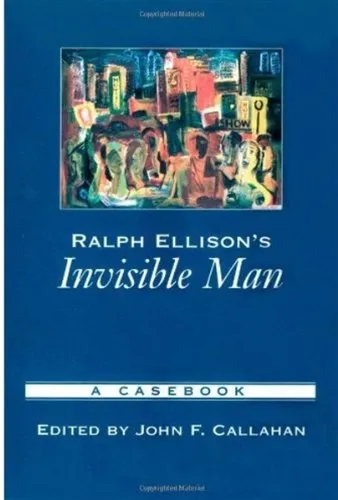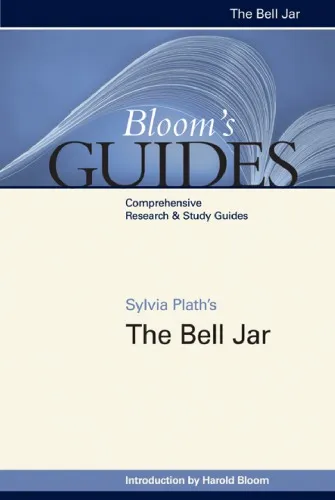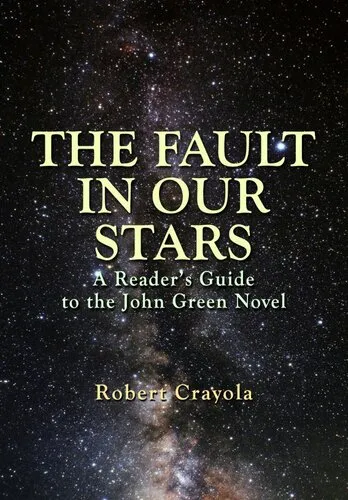The bell jar, by Sylvia Plath
4.0
Reviews from our users

You Can Ask your questions from this book's AI after Login
Each download or ask from book AI costs 2 points. To earn more free points, please visit the Points Guide Page and complete some valuable actions.Related Refrences:
Persian Summary
The Bell Jar by Sylvia Plath: An Introduction
Sylvia Plath's "The Bell Jar" is an iconic novel that provides a profound and disturbing look at mental illness, identity, and societal expectations. First published in 1963 under the pseudonym "Victoria Lucas," this seminal piece of literature continues to resonate with readers due to its raw and honest exploration of a young woman's descent into mental illness. This introduction offers an overview of the novel's key elements, diving into a detailed summary, key takeaways, memorable quotes, and the significance of the book.
Detailed Summary of the Book
Set in the 1950s, "The Bell Jar" follows the life of Esther Greenwood, a bright young woman who has won a prestigious magazine internship in New York City. Despite the glamour and opportunity surrounding her, Esther feels increasingly disenchanted with the societal roles expected of women. Her journey captures the essence of a bright future darkened by personal turmoil and psychiatric challenges.
Esther struggles with her aspirations, perfectionism, and the pressure to conform. Away from home, in a city teeming with life, she experiences a growing sense of alienation and finds herself trapped in a "bell jar" of her own mind. Overwhelmed by anxiety and depression, she returns home to suburban Massachusetts, where her mental state deteriorates.
The novel explores Esther's experiences with the mental healthcare system of the time, including her interactions with various doctors and her time in psychiatric institutions. Her journey through breakdown and recovery highlights the inadequate and often damaging treatments available in the 1950s, as well as the stigma surrounding mental illness.
Key Takeaways
- Mental Health Awareness: "The Bell Jar" serves as a powerful narrative that sheds light on the importance of mental health awareness and the need for compassionate care.
- Social Expectations: The novel critiques the societal expectations imposed on women during the 1950s, such as the pressure to marry and conform to traditional roles, highlighting conflicts between personal ambition and societal norms.
- Identity and Self-discovery: Esther's journey is also one of self-discovery and coming to terms with her identity, ambitions, and mental health, which speaks to the struggles many face when transitioning into adulthood.
Famous Quotes from the Book
"I felt very still and very empty, the way the eye of a tornado must feel, moving dully along in the middle of the surrounding hullabaloo."
"The silence depressed me. It wasn't the silence of silence. It was my own silence."
"To the person in the bell jar, blank and stopped as a dead baby, the world itself is a bad dream."
Why This Book Matters
"The Bell Jar" remains a poignant and timeless exploration of mental health and the societal pressures faced by women. Sylvia Plath's honest and compelling narrative provides insights into the complexities of human emotions and the world of psychiatric care in the mid-twentieth century. As a semi-autobiographical novel, it also offers glimpses into Plath's own life, struggles, and tragic end—making it a crucial part of literary and cultural studies.
Its rich narrative, combined with Plath's lyrical and evocative prose, has helped "The Bell Jar" endure as a classic. It challenges readers to contemplate the often invisible struggles of mental illness and the importance of empathy and understanding. For anyone grappling with similar issues or wishing to gain insight into the human condition, "The Bell Jar" is a compelling and necessary read.
Free Direct Download
You Can Download this book after Login
Accessing books through legal platforms and public libraries not only supports the rights of authors and publishers but also contributes to the sustainability of reading culture. Before downloading, please take a moment to consider these options.
Find this book on other platforms:
WorldCat helps you find books in libraries worldwide.
See ratings, reviews, and discussions on Goodreads.
Find and buy rare or used books on AbeBooks.
1815
بازدید4.0
امتیاز0
نظر98%
رضایتReviews:
4.0
Based on 0 users review
Questions & Answers
Ask questions about this book or help others by answering
No questions yet. Be the first to ask!
















